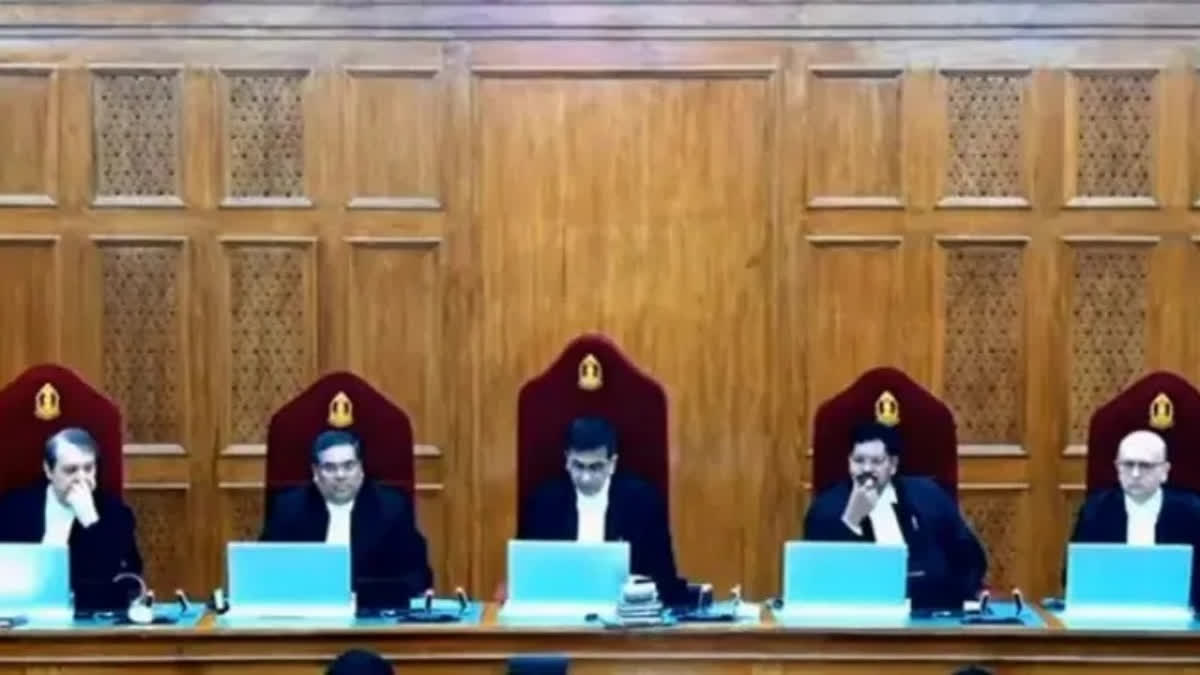New Delhi:The Supreme Court, which declared the electoral bond scheme 2018 as unconstitutional on Thursday, said the scheme falls foul and negates and overwhelmingly annuls the voter's right in an electoral process as neither the right of privacy nor the purpose of incentivising donations to political parties through banking channels justifies the infringement of the right to voters.
In his separate judgment, Justice Sanjiv Khanna refused to accept Centre’s contention that donors of a political party often apprehend retribution from other political parties or actors and thus their identities should remain anonymous. The Centre contended that the bonds uphold the right to privacy of donors by providing confidentiality and donating money to one’s preferred political party is a matter of self-expression by the donor. Therefore, revealing the identity invades the informational privacy of donors protected by the Constitution, said the Centre.
Justice Khanna stressed, “While secret ballots are integral to fostering free and fair elections, transparency—not secrecy—in funding of political parties is a prerequisite for free and fair elections”. Justice Khanna said retribution, victimisation or retaliation against any donor exercising their choice to donate to a political party is an abuse of law and power and this has to be checked and corrected. “As it is a wrong, the wrong itself cannot be a justification or a purpose. The argument, therefore, suffers on the grounds of inconsistency and coherence as it seeks to perpetuate and accept the wrong rather than deal with the malady and correct it”, he said.
Justice Khanna said the inconsistency is also apparent as the change in law, by giving a cloak of secrecy, leads to severe restriction and curtailment of the collective’s right to information and the right to know, which is a check and counters cases of retribution, victimisation and retaliation. “Transparency and not secrecy is the cure and antidote”, he said.
He said the argument that the donor may like to keep his identity anonymous is a mere ipse dixit assumption. “The plea of infringement of the right to privacy has no application at all if the donor makes the contribution, that too through a banking channel, to a political party. It is the transaction between the donor and the third person. The fact that a donation has been made to a political party has to be specified and is not left hidden and concealed”, he said.
He added that what is not revealed is the quantum of the contribution and the political party to whom the contribution is made. “Further, when a donor goes to purchase a Bond, he has to provide full particulars and fulfil the KYC norms of the bank. His identity is then asymmetrically known to the person and the officers of the bank from where the Bond is purchased. Similarly, the officers in the branch of the authorised bank where the political party has an account and encashes the Bond are known to the officers in the said bank”, said Justice Khanna.
